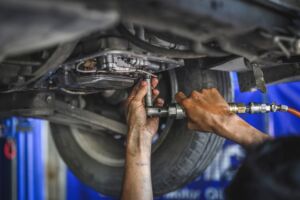The prevalence of automatic transmissions in Canada is high, with approximately 99% of cars sold being equipped with this type of transmission. However, it’s important to note that even in vehicles with automatic transmissions, there is still a clutch system working behind the scenes.
This often goes unnoticed by drivers who are not familiar with the inner workings of their vehicles. Understanding how a clutch operates and being aware of the factors that can lead to its failure and necessary clutch replacement is crucial for every vehicle owner.
Understanding Your Clutch System
A clutch is a fundamental component of any vehicle, whether it has an automatic or manual transmission. Its primary function is to engage and disengage the power from the engine to the transmission, allowing for smooth gear shifting and control over the vehicle’s speed. The clutch system consists of several key components, including the clutch disc, pressure plate, flywheel, release bearing, and clutch fork.
Despite the differences between automatic and manual transmissions, both types rely on a clutch system to some extent. In manual transmissions, the clutch is manually operated by the driver through the clutch pedal, which engages or disengages the clutch disc from the flywheel. This allows for the selection of different gears while driving. In automatic transmissions, the clutch operates automatically using a hydraulic or electronic system without requiring driver intervention for gear changes.
Given the importance of the clutch and its role in the overall performance of a vehicle, it’s crucial to understand the common causes of clutch failure. By being aware of these factors, drivers can take preventive measures and seek timely repairs to avoid costly breakdowns and ensure the longevity of their clutch system.
Top 3 Reasons for Clutch Failure
1. Leaking Cylinders
In order for your clutch to function properly, it relies on a consistent flow of fluid through its systems. If there is a leakage and the fluid escapes, your clutch may struggle to build up sufficient pressure, resulting in improper operation.
To identify a potential leakage, keep an eye out for mysterious puddles forming under your vehicle. Additionally, a distinct burnt oil smell can indicate leaking cylinders. Both the master and slave cylinders are susceptible to developing leaks, so it’s important to remain vigilant. If you observe any signs of leakage, it is crucial to address the issue immediately and seek clutch repair services.
2. Broken Cables
Cables play a critical role in connecting the clutch to its linkages. When you press down on the clutch pedal, tension is transmitted through the cables, activating the clutch system. These cables are indispensable components, and without them, the entire clutch system breaks down.
Cable failure can occur in various ways. Complete cable breakage leads to a total clutch failure, while slack cables result in the loss of tension transmission. Unfortunately, issues with cables may not be apparent from the outside.
However, since damaged cables are a prevalent cause of clutch failure, sudden clutch malfunction may indicate cable problems. If your clutch stops working unexpectedly, it is reasonable to suspect damaged cables as the likely culprit.
3. Worn Pressure Plates
Pressure plates are integral components of the clutch system as they connect the flywheels with the clutch discs. When pressure plates are unable to apply sufficient pressure, they fail to fulfill their function, necessitating a visit to a clutch repair shop.
Given the substantial pressure exerted on pressure plates during daily driving, it is natural for them to wear down over time. One of the tell-tale signs of a damaged pressure plate is a squeaking sound. Additionally, you may experience a rattling sensation when applying the clutch, indicating that the disc spins freely against the flywheel without the necessary support from the plate.
Clutch Replacement in Edmonton
By being aware of these common causes of clutch failure, you can promptly identify potential issues and seek professional assistance. Regular maintenance and timely repairs are vital to ensure the longevity and proper functioning of your vehicle’s clutch system. If you notice any symptoms mentioned above or require clutch repair services, don’t hesitate to consult a trusted clutch repair shop for expert assistance.






